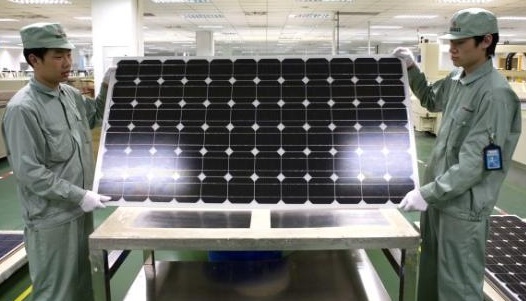
A trade dispute has arisen between U.S solar firms and their Chinese equivalent in a row that is threatening to put a dampener on solar energy technology in the near future. The disagreement erupted when the US manufacturers called for a 100% mark up on solar imports from Chinese manufacturers that are driving artificially low prices in the solar markets and clean energy practice, whilst taking advantage of generous government subsidies in the process.
The coalition, led by SolarWorld Industries America Inc. is planning to take he case as high as the ITC, levelling anti-dumping and anti subsidy charges at Chinese manufacturers in an increasingly tense atmosphere which has even seen Barack Obama lending his views.
As evidence, The Coalition for American Solar Manufacturing (CASM) asserts federal trade data shows that Chinese exports into America in July 2011 alone exceeded those of all of 2010 despite a contracted market and even increased their total cell capacities from 6 gigowatts to 16 gigowatts.
Through a melange of preferential loans, warehousing and export financing, the Chinese have succeeded in flooding the US market with cheap PV panels, putting them at odds with local production in an act that CASM believe woud negatively impact American upstream and downstream projects and job stability across the sector.
The Chinese are reacting accordingly. China’s largest solar power plant developer China Energy Conservation and Environmental Protection Group CECEP has already put a planned $500 million U.S. project on hold over the anti-dumping trade dispute and this could also impact on the market for Chinese rare earth mineral exports on which the US manufacturers are so dependant upon.
The Chinese viewpoint, supported by the Coalition for Affordable Solar Energy (CASE) argues that CASM are picking the wrong fight, the solar energy market is relatively stable and cheap imports are beneficial for the downstream and installation sectors, which do not impinge too dramatically on cell and manufacturing practices – the area that SolarWorld is fearful for – with CASM going on to accuse Solarworld of harbouring its investment interests on the development side of things, which is of no value to lowering products for the general American public. Furthermore, Jigar Shah, founder of CASE friendly manufacurer SunEdison has stated that ‘the U.S. still represents only 5 percent to 10 percent of the global solar marketplace’ and such act of protectionism would only stymie innovaion and investment
The outcome of the anti-dumping charges will depend upon the findings of the ITC which expects to give a verdict for February. The outcome it seems, will quite probably fall with the American companies. Both the ITC and DoC tend to support the plaintiff, as seen with recent-ish Boeing / Airbus cases and the distant EU/US steel disputes, however any comporomise would see a potentially sticky halting of the subsidy period, so the war is well and truly underway.
If anything, the positives that will come out of this will be the increased profile of the US solar industry, which as of yet boasts no major corporate interest in photovoltaics and in reducing the costs of using solar technology in the long term, irrespective of the ITC decision. Personally, it seems as if SolarWorld is working very hard and being very vociferous in its attempts to maintain its predominance in the field and protect its huge investment (without federal subsidies) of half a billion dollars in its production costs and playing on the Chinese surplus as anti-fair trade, spooking the global community over Chinese intentions.